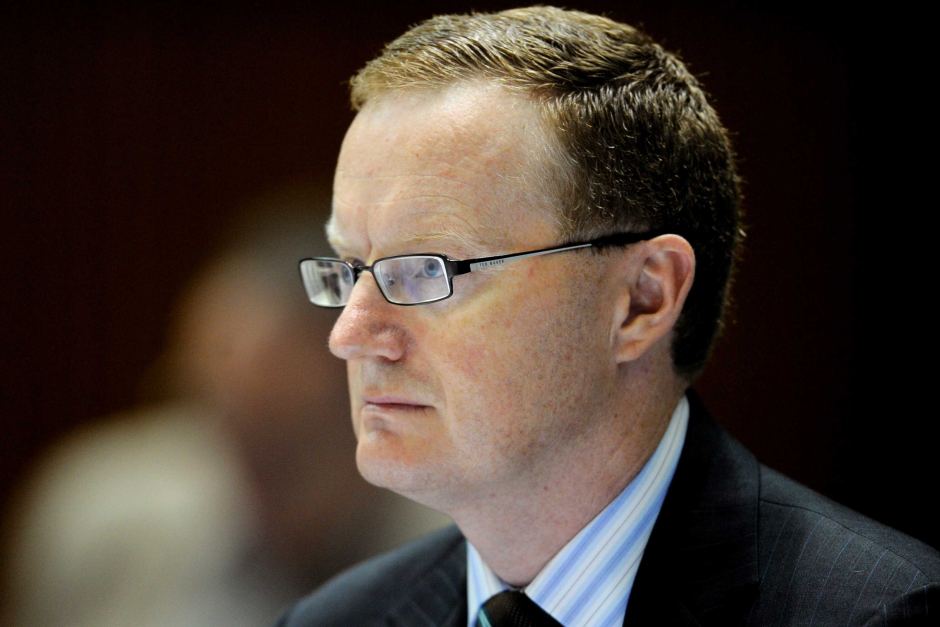Category: Economic Trends / Money and Monetary Policy
Reserve Bank sees smooth transition away from mining
Tuesday, 8 Mar 2016 10:05:16 | Michael Janda

The Reserve Bank's deputy governor Philip Lowe said flexible wages, interest rates and exchange rates are assisting Australia. (AAP Image: Alan Porritt)
The Reserve Bank has given an upbeat assessment of Australia's economic transition away from the mining boom, while leaving the door open to further rate cuts.
The RBA's deputy governor Philip Lowe - the current favourite to succeed governor Glenn Stevens when his latest term expires this year - said the nation's move to a more flexible economy in the 1980s and '90s had laid the foundation for its relative resilience.
"The flexibility in these key prices – the exchange rate, interest rates, and wages – has served us well," he told an Urban Development Institute of Australia conference.
In particular, Dr Lowe highlighted weak wages growth as a key factor keeping unemployment around 6 per cent.
"Low wage growth is one of the factors that has underpinned the reasonably positive employment outcomes," he argued.
"Over the past year, the Wage Price Index (WPI) has risen by just 2.25 per cent, the lowest outcome in the 17-year history of this series."
However, while Dr Lowe argued the benefits of keeping unemployment low are paramount, he did acknowledge the negative side to low wages.
"While we have done a pretty good job of adjusting to our changed circumstances, the not-so-good news is that growth in real income per capita in Australia has stalled," he observed.
"Indeed, average real income is no higher today than it was in 2008. This follows a 17-year period in which growth averaged a remarkable 3.1 per cent per year."
While this weak wages growth may leave many people feeling worse-off than they were several years ago, Dr Lowe said it has facilitated record low interest rates, which could fall further if needed.
"This low inflation outlook provides scope for easier monetary policy should that be appropriate in supporting demand growth in the economy," he added.
The main threats to the economy, as Dr Lowe sees it, come from outside the country, with China the Reserve Bank's number one concern.
"The main risks to this central scenario still seem to lie in the international sphere," he cautioned.
"Our largest trading partner, China, is going through a difficult transition to a more consumption-led and service-based economy and is dealing with high levels of corporate debt and the complications of opening its capital account."
Another threat to Australia is the recent rise in the dollar, which threatens to reduce the competitive advantage Australian exporters have enjoyed from a lower currency.
"The monetary easing abroad is a complication for us, as it tends to put downward pressure on the currencies where the easing is taking place and thus upward pressure on the Australian dollar," Dr Lowe observed.
The European Central Bank is widely expected to announce further monetary stimulus this month, while Japan moved to a negative interest rate policy earlier this year.
Dr Lowe said the RBA would welcome "a slightly lower currency" but "when you look around the world at the moment almost every central bank would like a lower currency, we would be in that group."
- About Us
- |
- Terms of Use
- |
-
 RSS
RSS - |
- Privacy Policy
- |
- Contact Us
- |
- Shanghai Call Center: 962288
- |
- Tip-off hotline: 52920043
- 沪ICP证:沪ICP备05050403号-1
- |
- 互联网新闻信息服务许可证:31120180004
- |
- 网络视听许可证:0909346
- |
- 广播电视节目制作许可证:沪字第354号
- |
- 增值电信业务经营许可证:沪B2-20120012
Copyright © 1999- Shanghai Daily. All rights reserved.Preferably viewed with Internet Explorer 8 or newer browsers.




 Send to Kindle
Send to Kindle